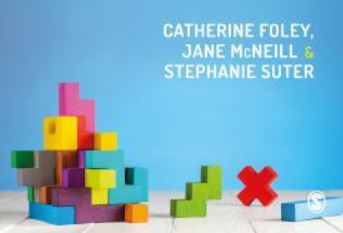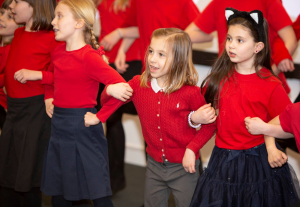Below you’ll find some tips compiled by IoE staff to help children stay engaged during COVID-19.
Generally:
- Take your time to work out what works for you. Something that works well for one family or child, e.g. creating a timetable so that there is a clear structure for the day, might cause pressure and stress for another.
- It’s also important to recognise anything that you have achieved together. Try not to worry about or compare with what other children seem to be doing or what they might have got done in a typical school day. Learning takes place in small, uneven steps over long periods of time and isn’t always immediately obvious!
- Try to focus on what the child CAN do. If they see how the newly introduced material links with what they already know they will find it easier to learn, and what they learn will be more readily recalled.
Language learning:
- Time at home could also be a good opportunity for children and their parents/carers to learn more about other countries and cultures, an area that can be sometimes overlooked but which is important to develop.
- There are lots of online materials to aid with language learning, but the challenge is to find things that are at the right level for your child. There are some useful ideas on this site, with guidance about the level of proficiency needed (mainly for French but touching on other languages too). It’s aimed at teachers setting work for their pupils, but could be used by parents/carers too: https://frenchteachernet.blogspot.com/2020/03/setting-work-for-home-study.html.
- https://www.goethe.de/en/spr/ueb/stu.html?wt_sc=couchpotato is a good source for German.
- A collection of links for younger learners of Spanish can be found at https://www.all-languages.org.uk/primary-2/primary-resources/spanish/
- Resources for French can be found here https://www.all-languages.org.uk/primary-2/primary-resources/french/
- There are also interesting materials for exploring how language learning can develop creativity – for children, parents, and everyone else. See https://www.creativeml.ox.ac.uk/resources
Mathematics:
- Cooking could be used to teach maths by writing a recipe/ measuring out ingredients.
- Board games such as snakes and ladders and monopoly are all good for developing mathematical thinking.
- Creating subject specific questions and placing them around the house as a maths trail could work well too e.g. if a child has been learning multiplication facts, they can then develop a trail around the house with clues and questions. This not only consolidates their learning but also develops problem solving!
- You could also use Lego to develop volume, area and perimeter.
- Using art can also be a good way to think about mathematics as well- e.g using geometry to create shapes through pictures and identify those shapes. This can be linked with nature- if there is access to a garden.
- Questions about time linked with simple fractions could work for young pupils. Older pupils could be asked to look at journey times online and work these out i.e ask them to work out how to get from Reading to Edinburgh in the least costly and most timely way.
- Time conversions – asking what time will it be in another country if it’s 10:00 here, same as money conversions can help with arithmetic.
- For learning how to multiply, see if they can suggest more than one way to think about multiplying e.g. five threes, or three fives, or 3+3+3+3+3 or a rectangle with a 3cm side and a 5cm side etc.
Further sources:
- https://www.accessart.org.uk/
- Joe wicks for kids: https://www.thebodycoach.com/blog/pe-with-joe-1254.html
- https://www.scouts.org.uk/the-great-indoors/
- https://twitter.com/hubnature/status/1240672046885081088?s=12
- https://www.radiotimes.com/news/radio/2020-03-20/audible-just-made-hundreds-of-titles-completely-free-to-help-during-coronavirus-crisis/














 On 26 March 2019 we were delighted to hold a school partnership celebration event at the Institution of Education (IoE), supported by the Vice-Chancellor’s endowment fund.
On 26 March 2019 we were delighted to hold a school partnership celebration event at the Institution of Education (IoE), supported by the Vice-Chancellor’s endowment fund. thank not only those who were able to attend but our entire partnership for making it possible to help shape teachers that are sought after and inspiring.
thank not only those who were able to attend but our entire partnership for making it possible to help shape teachers that are sought after and inspiring.
 We are excited to announce two new courses for supporting successful learning in schools, one for primary and one for secondary.
We are excited to announce two new courses for supporting successful learning in schools, one for primary and one for secondary. 

 An athlete and trainee teacher at the University of Reading says he is grateful for the support that allowed him to compete alongside Olympians at the recent international rowing championships.
An athlete and trainee teacher at the University of Reading says he is grateful for the support that allowed him to compete alongside Olympians at the recent international rowing championships.